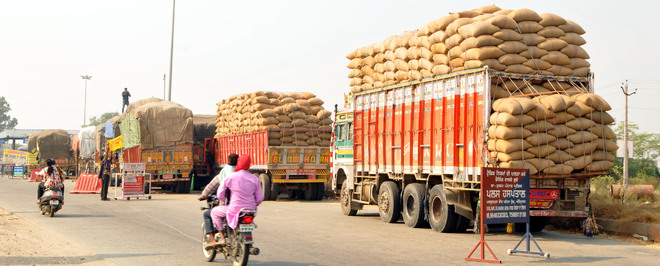You must adhere to certain procedures and fulfil certain conditions in order to import rice into Saudi Arabia. A broad guide on bringing rice into Saudi Arabia is provided here:
Study Import criteria: Become familiar with Saudi Arabia’s rice import criteria and rules. It is crucial to refer to the most recent information provided by Saudi Arabian authorities, including the Saudi Food and Drug Authority (SFDA) and the Saudi Customs, as these regulations are subject to change over time.
Register Your Company: Ensure that your business is registered and has the authorizations required to conduct import operations in Saudi Arabia. This entails applying for a commercial registration (CR) number and registering your company with the Ministry of Commerce and Investment.
To import rice into Saudi Arabia, you need to follow certain procedures and meet specific requirements. Here is a general guide on how to import rice into Saudi Arabia:
- Research Import Regulations: Familiarize yourself with the import regulations and requirements for rice in Saudi Arabia. These regulations may change over time, so it’s essential to refer to the latest information from the Saudi Arabian authorities, such as the Saudi Food and Drug Authority (SFDA) and the Saudi Customs.
- Register Your Business: Ensure that your company is registered and has the necessary permits to engage in import activities in Saudi Arabia. This includes registering your business with the Ministry of Commerce and Investment and obtaining a commercial registration (CR) number.
- Obtain Import Licenses: Apply for the required import licenses and permits from the relevant Saudi Arabian authorities. The specific licenses needed may vary depending on the type and quantity of rice you intend to import. Contact the SFDA or the Ministry of Environment, Water, and Agriculture to inquire about the necessary licenses for importing rice.
- Product Labeling and Packaging: Ensure that your rice packaging complies with the labeling regulations in Saudi Arabia. The packaging should include information such as product name, brand, country of origin, net weight, production, and expiration dates. Arabic labels are typically required, so you may need to provide translations.
- Quality and Safety Standards: Rice imports into Saudi Arabia must meet specific quality and safety standards set by the SFDA. Ensure that your rice adheres to these standards, including proper hygiene, absence of contaminants, and compliance with permissible pesticide residue levels. Obtain any necessary certification or testing reports from accredited laboratories.
- Shipping and Customs Documentation: Arrange for shipping logistics and prepare the required documentation. This includes commercial invoices, packing lists, bill of lading or airway bill, certificate of origin, import licenses, and any other relevant certificates or permits.
- Customs Clearance: Upon arrival in Saudi Arabia, your shipment will go through customs clearance procedures. Submit the necessary documentation to the Saudi Customs and pay any applicable customs duties, taxes, or fees.
- Product Inspection: The SFDA may conduct inspections to verify the compliance of your rice shipment with the required standards. Ensure that your rice is accessible for inspection, and provide any requested samples or documentation.
- Distribute and Market Your Rice: Once your rice has been cleared by customs and the SFDA, you can distribute and market your product in Saudi Arabia. Establish business connections with local distributors, wholesalers, or retailers to help distribute your rice to the market.
If you are interested in importing rice from Eastgate Export Pvt Ltd, an Indian manufacturer and exporter of Basmati and non-Basmati rice, you can follow the general steps outlined below to import their rice into Saudi Arabia:
- Research Saudi Arabian Import Regulations: Familiarize yourself with the import regulations and requirements for rice in Saudi Arabia. Ensure that you are aware of the specific rules and documentation needed for importing rice from India, including those set by the Saudi Food and Drug Authority (SFDA) and Saudi Customs.
- Contact Eastgate Export Pvt Ltd: Get in touch with Eastgate Export Pvt Ltd and express your interest in importing their Basmati and non-Basmati rice into Saudi Arabia. Provide them with detailed information about your requirements, such as the quantity, preferred rice varieties, packaging specifications, and any specific quality or certification requirements.
- Product Samples and Specifications: Request product samples from Eastgate Export Pvt Ltd to evaluate the quality and suitability of their rice for the Saudi Arabian market. Also, obtain comprehensive specifications regarding the rice varieties, grain size, processing methods, packaging, and any applicable quality certifications or test reports.
- Shipping and Logistics: Discuss shipping arrangements and logistics with Eastgate Export Pvt Ltd. Coordinate the mode of transportation (air, sea, or land) and the necessary shipping documents, including commercial invoices, packing lists, bill of lading or airway bill, certificate of origin, and any other required documentation. Ensure that the exporter is aware of the specific requirements for shipping to Saudi Arabia.
- Import Licenses and Permits: Obtain the necessary import licenses and permits from the Saudi Arabian authorities. Work with your customs clearing agent or import/export consultant in Saudi Arabia to ensure that you have the required documentation for importing rice from India.
- Customs Clearance and Inspection: Prepare the necessary customs documentation and work with your customs clearing agent in Saudi Arabia to facilitate the smooth clearance of the imported rice. Be prepared for potential inspections by the SFDA to ensure compliance with quality and safety standards. Provide any necessary samples or documentation to support the inspection process.
- Distribute and Market the Imported Rice: Once the rice shipment has cleared customs and any inspections, you can proceed with distributing and marketing the imported Basmati and non-Basmati rice in Saudi Arabia. Establish connections with local distributors, wholesalers, or retailers to effectively reach the target market.
















